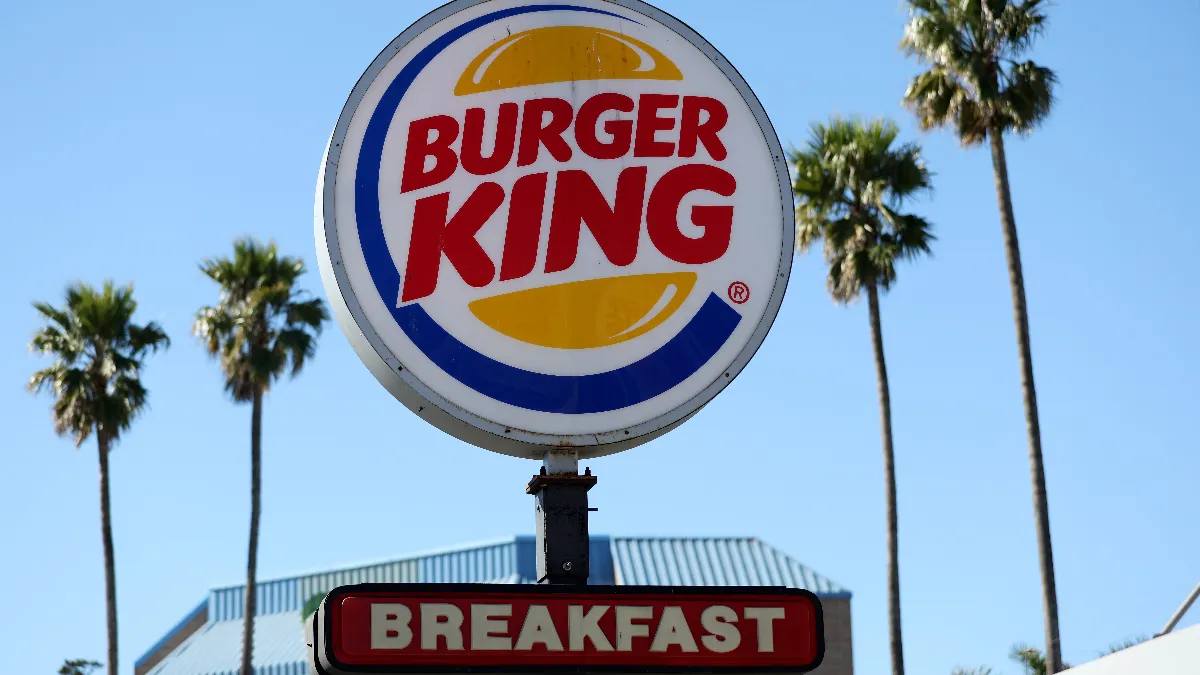Dive Brief:
- A district court erred when it dismissed a suit against a group of Burger King franchisees alleging the restaurants illegally maintained no-poach agreements prohibiting them from hiring each other’s employees, the 11th U.S. Circuit Court of Appeals held Wednesday (Arrington v. Burger King Worldwide, Inc., No. 20-13561 (11th Cir. Aug. 31, 2022)).
- The workers claimed the company’s agreements prevented them from obtaining employment at other franchise restaurants, allegedly resulting in artificially depressed wages, decreased benefits and reduced job mobility. The suit further alleged the agreements were an unreasonable restriction on trade, in violation of the Sherman Antitrust Act.
- The district court found Burger King and each of its franchisees constituted a “single economic enterprise” incapable of conspiring under the Sherman Act. But the 11th Circuit reversed, comparing the network of Burger King franchisees to National Football League teams, which faced a similar suit. “Like the 32 [NFL] teams … Burger King and its separate and independent franchise restaurants compete against each other — in this case, for employees,” the court said.
Dive Insight:
The case touches on an area of employment law that has garnered strong attention from regulators in recent years.
In January 2018, the U.S. Department of Justice created a stir when it announced that it would be issuing indictments over employers’ no-poach agreements and “naked wage-fixing agreements.” That announcement followed a joint 2016 document published by DOJ and the Federal Trade Commission in which the two agencies cautioned HR professionals about the antitrust implications of agreements that constrain competition for the same employees between organizations. Consequences could include prison terms, among other penalties.
In the years since, attorneys have spoken about the possibility that employers may face criminal charges for no-poach agreements, among other employment constructs. DOJ made good on this notion when, in 2021, it filed its first criminal charge alleging that a group of employers engaged in a no-poach agreement.
Employer groups have spoken out on the subject. For example, the Society for Human Resource Management recently filed an amicus brief in a case involving no-poach agreements that discussed the confusion employers may face in determining which types of agreements are illegal, particularly for situations in which an employer attempts to partner with multiple staffing firms to provide labor on the same project.
At the same time, employers — particularly those in the food service industry — have begun to move away from the agreements in recent years. In fact, the 11th Circuit noted in Arrington that “Burger King purportedly removed the so-called ‘no-poach, no-hire language’ from new franchise agreements” beginning in 2018, though some restaurants had signed older versions of the franchise agreement that included this language.
Employers may have other options when it comes to implementing restrictive covenants for certain job types. During SHRM’s 2022 annual conference, one attorney stated that agreements such as nonsolicitation covenants and nonrecruitment covenants could be viable alternatives in some circumstances.















